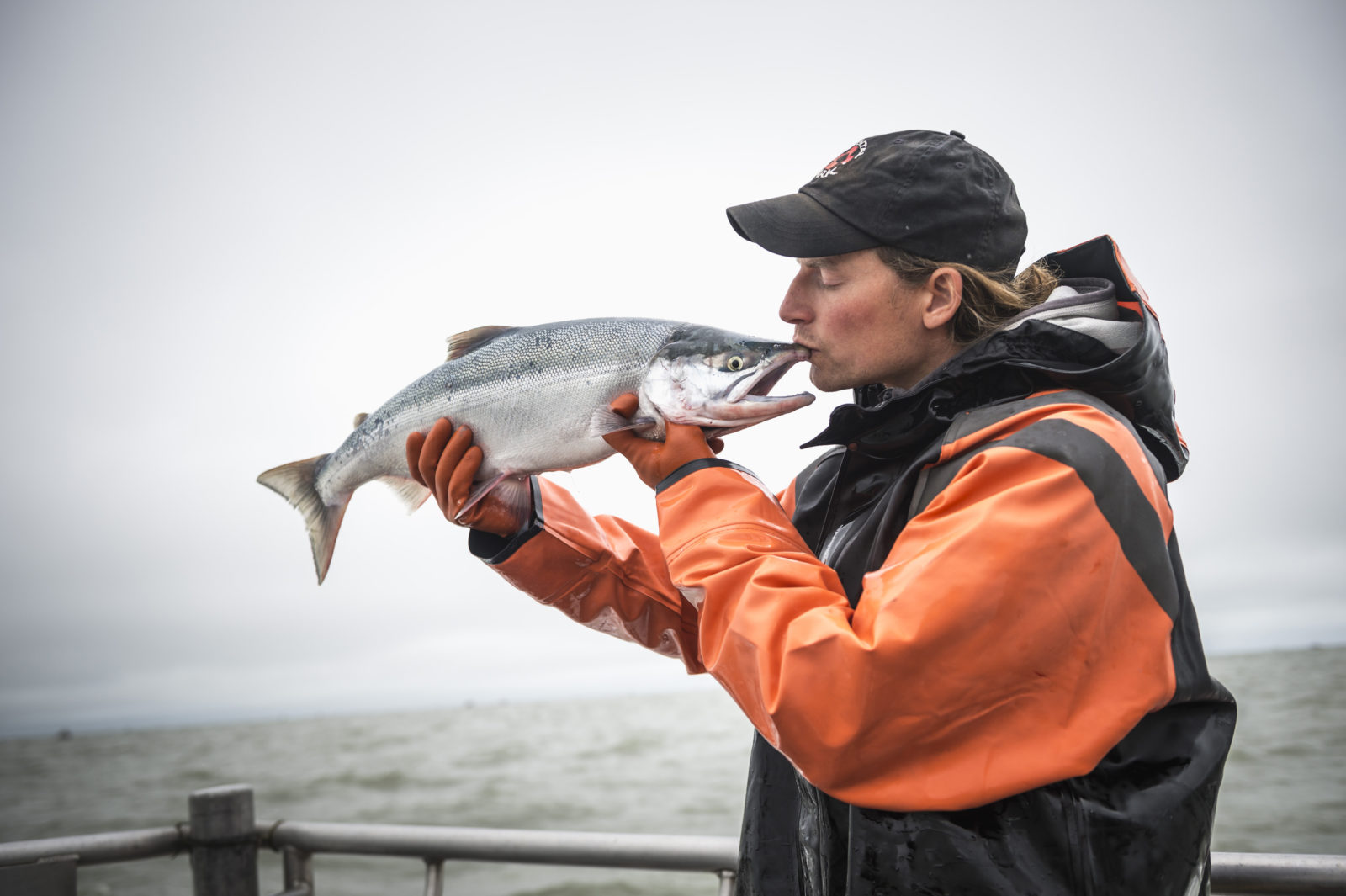Ocean Warming: Our fisheries and the scientific advice to end global carbon emissions
As carbon emissions are building up in the atmosphere, the ocean is absorbing and storing much more heat, transforming Alaska’s oceans before our very eyes. We discuss scientific advice to sharply reduce carbon emissions.
Photo courtesy of Chris Miller.

Listen On Spotify
Listen On Apple Podcasts
Listen Here
Expert Interviewed
Francis Wiese, Stantec
Francis Wiese is the Technical Leader for Marine Science at Stantec, a global design, engineering, and environmental consulting firm. He serves on the Interagency Arctic Research Policy Committee, the Studies of Environmental Arctic Change (SEARCH) Steering Committee, and the Division Committee for the National Academies of Sciences Gulf Research Program, and other scientific organizations to foster coordinated research in the Gulf of Mexico, the Pacific, Atlantic, and Arctic Oceans. Wiese holds a PhD in Conservation and Marine Biology from Memorial University of Newfoundland.

More information on topics discussed in this episode:
- Carbon dioxide comprises 80% of the greenhouse gases. The other gases are methane, nitrous oxide, and a family of synthetic fluorinated gases. The EPA: Overview of Greenhouse Gases provides a useful description including the percentage they contribute to the total, their global warming potential, and how long they stay in the atmosphere from a few years to thousands of years.
- Alaska marine heat waves:
- Follow this story map by Alaska Fisheries Science Center – “Gulf of Alaska 2019: It’s All About the Food”
- NOAA scientists evaluate the intersection of climate change with ecosystem-based fisheries management in the context of Gulf of Alaska Pacific cod decline – “Marine Heatwave Stress Test of Ecosystem-Based Fisheries Management in the Gulf of Alaska Pacific Cod Fishery”
- Nature-based climate solutions involve conserving, restoring, or better managing ecosystems to remove carbon dioxide from the atmosphere – or in the case of ocean acidification, removing carbon from the water. “What are nature-based solutions?”
- Intergovernmental Panel on Climate Change (2021) – Climate Change 2021: The Physical Science Basis. Contribution of Working Group I to the Sixth Assessment Report
- The United Nations’ Secretary General called this report code red for humanity. “The internationally agreed threshold of 1.5°C is perilously close. We are at imminent risk of hitting 1.5°C in the near term. The only way to prevent exceeding this threshold is by urgently stepping up our efforts and pursuing the most ambitious path.”
- See key take-aways from the report – IPCC press release
- Easy to read summary of the report prepared by the Center for Climate and Energy Solutions – “How policy-makers should absorb the IPCC’s latest warning”
- Intergovernmental Panel on Climate Change (2019) – Oceans and Cryosphere in a Changing Climate
- This report focuses on oceans, coasts, frozen regions of the globe (polar regions and high mountains). It presents current science on the impacts of ocean warming and other consequences of ocean uptake of carbon from the atmosphere, such as ocean acidification.
- Intergovernmental Panel on Climate Change (2018) – Global Warming of 1.5°C
- This is an IPCC Special Report on the impacts of global warming of 1.5°C above pre-industrial levels and related scenarios of global greenhouse gas emissions.
- In 2018 the International Maritime Organization (IMO) adopted a strategy to reduce greenhouse gas emissions from shipping by at least 50% by 2050 while pursuing efforts to phase them out. Learn more from the shipping and fishing industry:
- The Getting to Zero Coalition of over 120 shipping companies is working to have commercially viable zero emission vessels operating along deep-sea trade routes by 2030.
- To incentivize rapid progress, the global shipping giant Maersk is calling for a carbon tax of $150 per ton of emissions.
- Setting high goals, see “U.S. joins Norway, Denmark to advance zero emissions ship fuels”
- In Alaska, check out efforts underway by the Alaska Longline Fishermen’s Association to explore potential for electric or hybrid fishing vessels – “Electric power systems for fishing vessels: Feasibility, fuel savings and costs“

For more information
Contact Darcy Dugan, dugan@aoos.org

